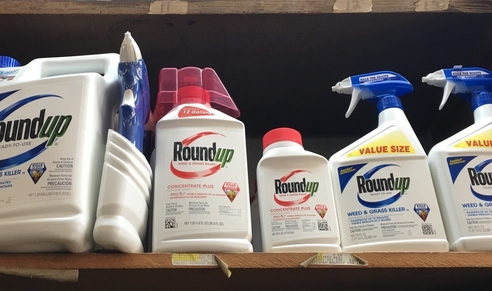LEVERKUSEN, GERMANY—In a victory for consumers, advocates, and the environment, Monsanto-Bayer today announced it will end the sales of its glyphosate-based herbicides—including its flagship product, Roundup—in the U.S. residential lawn and garden market in 2023. The company stated it will switch to formulations that "rely on alternative active ingredients" in order to "manage litigation risk and not because of any safety concerns."
Statement from Andrew Kimbrell, executive director of the Center for Food Safety:
"Bayer's decision to end U.S. residential sale of Roundup is a historic victory for public health and the environment. As agricultural, large-scale use of this toxic pesticide continues, our farmworkers and consumers remain at risk. It's time for EPA to act and ban glyphosate for all uses."
Center for Food Safety (CFS) and allies are currently legally challenging the Environmental Protection Agency (EPA) approval of glyphosate as unlawful for a number of reasons—including cancer risks to farmers and farmworkers from exposure.
In response to the lawsuit, in May EPA effectively admitted grave errors in its 2020 interim registration of glyphosate, asking the court for permission to re-do the agency's faulty Endangered Species Act assessments. However, the agency stated that, despite its misgivings, Roundup should nonetheless stay on the agricultural and retail markets in the interim—without any deadline for a new decision.
In the lawsuit, CFS and allies addressed the issues EPA wants to reconsider and others as well. For instance, the coalition also presented ample evidence that glyphosate is a human health threat, posing the risk of cancer in particular to farmworkers and others who spray glyphosate-based herbicides, including landscapers and gardeners.
Last year, Bayer announced several massive legal settlements totaling over $10 billion to compensate those harmed by its products. In California, jury trials continue to be held. The courts recently re-affirmed a judgment against Monsanto for cancer from Roundup in Hardeman v. Monsanto—one of the first in a series of high-profile consumer lawsuits filed against Monsanto-Bayer. Diagnosed with non-Hodgkin lymphoma in February 2015, Mr. Hardeman used Roundup for more than two decades. He sued Monsanto, alleging the company knew or should have known of the risks its herbicide posed to users, but did not provide adequate warnings about these harms.
CFS has warned of Roundup's hazards for more than two decades and contributed a friend of the court brief to help defend the Hardeman verdict against an appeal by Monsanto-Bayer. Last year, CFS and allies delivered over 157,000 signatures to Home Depot and Lowe's, urging the companies to end the sales of Roundup.




